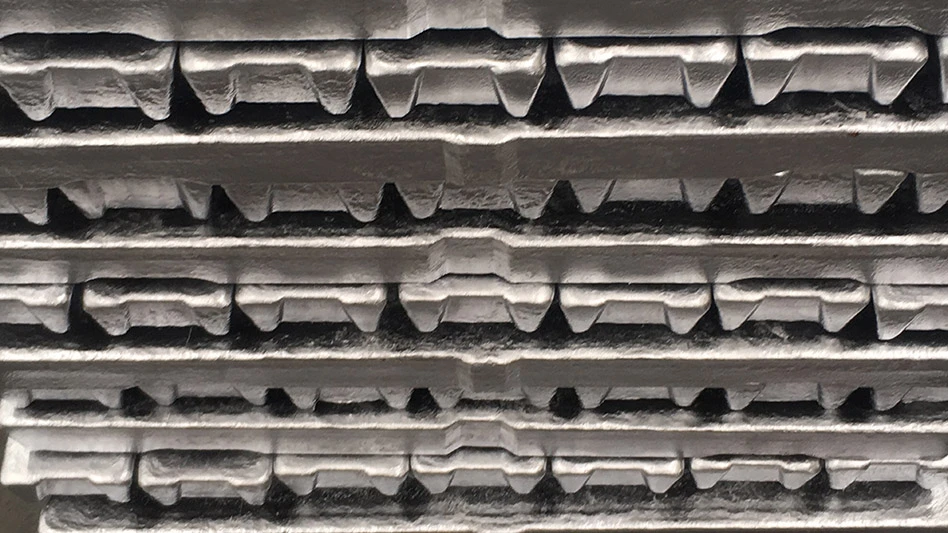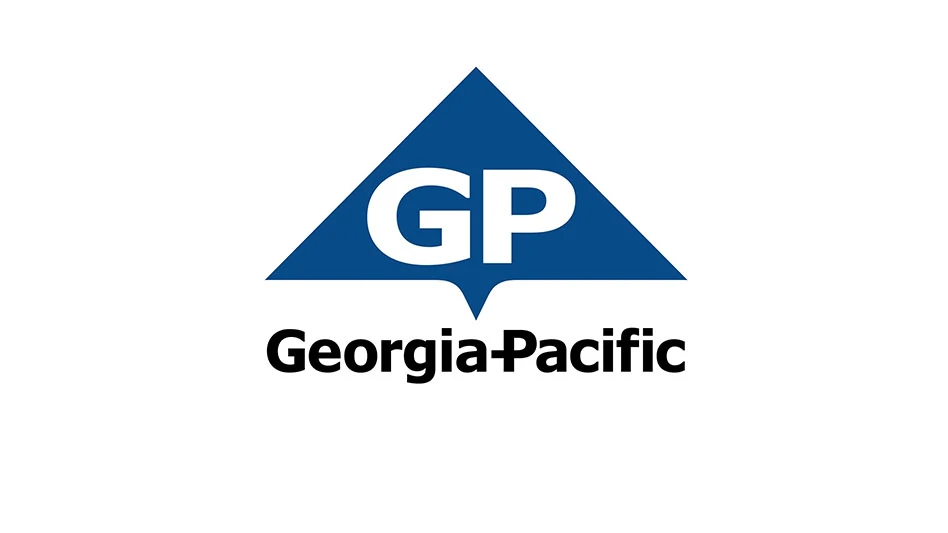 Successful scrap recycling company owners usually have no shortage of opportunities to sell their companies to willing buyers or to manage their companies for aggressive growth in a fashion that renders those companies vulnerable during a downturn.
Successful scrap recycling company owners usually have no shortage of opportunities to sell their companies to willing buyers or to manage their companies for aggressive growth in a fashion that renders those companies vulnerable during a downturn.
Members of the Safran family have faced those very opportunities and challenges for three generations; but, as 2014 gets underway, Safran Metals is retaining its place as a midsized wire chopper and nonferrous scrap recycler on Chicago’s North Side.
The leadership team guiding Safran Metals consists of a combination of family members and long-time employees who are considered to be family. The team includes both gray-haired industry veterans and younger managers who plan to guide the company well into the 21st century.
What all the company’s leaders have in common is placing the highest priority on long-term relationships and earning and maintaining the trust of customers, employees and each other.
Understanding the craft
Safran Metals was founded by the late Paul Safran, father of current President Steven Safran and grandfather of the company’s current Vice President and Chief Operating Officer Todd Safran.
Before arriving in the United States from Germany in 1939, Paul went through an apprentice program in scrap metal when he was 15 years old, says Steven. “How or why he chose that, I wish I could ask him,” he comments.
Paul “worked for other people and even started his own company in Germany,” says Steven, but he left for the U.S. at age 31 as the oppressive climate of persecution in Germany continued to grow worse.
“When he came here, he started working for Federated Metals of East Chicago, Ind., as a metals sorter. He didn’t speak much English, but he soon started trying to teach them what was worth sorting,” says Steven of his father’s early years in the U.S. scrap business. “They didn’t like a greenhorn who didn’t speak much English telling them what to do,” he adds.
Paul worked and saved to go into business for himself. “My father was very smart—not formal education, but street smart,” says Steven.
The company that began as Paul Safran Metals started from a studio apartment. Steven says when Dun & Bradstreet came out to check on the company, “My mother brought the desk out and folded up the Murphy bed,” referring to an old model of bed that folds up into or against a wall.
“Father worked during the day and went to night school to learn English,” says Steven, “while Mother was bookkeeper and dispatcher.” Although the company started modestly, it was not long before Safran Metals was calling on major accounts. “He was able to get accounts such as Sunbeam Corp. in 1940, and they extended him credit.”
Steven says his father’s contact at Sunbeam eventually became the executive vice president of the firm and vouched for his father’s trustworthiness and reliability.
“He really helped advance my father’s business as he was then able to pick up such accounts as Hot Point, Westinghouse and Signode steel.”
Paul Safran Metals established itself within the Chicago nonferrous scrap recycling scene throughout the 1940s, ’50s and into the 1960s, as Steven reached an age where he needed to make a career choice.
“My father never pushed me into the business,” says Steven, who spent a stint in the U.S. Coast Guard Reserves in 1965 and then worked as an auditor for Canteen Corp., a Chicago-based food services and vending company.
“I got tired of traveling, though, and approached my dad and went into the family business in 1967,” recalls Steven.
|
Setting the table Safran Metals Operations Manager Luis Martinez was recruited to the company by its Vice President Al Baron but not necessarily in the most customary way. Baron, who owns a boat that he docks on Lake Michigan in Chicago, was sitting at his boating club one weekend in 1985 when he noticed a newer busboy being particularly diligent with the way he cleared and cleaned tables in the club’s dining area. “He very carefully washed the tables and ensured that he was using clean water with each swipe of the table—his approach was just way more thorough and hygienic than what I typically saw,” recalls Baron. Baron gave a business card to the young man and urged him to come to Safran Metals the following Monday morning to see about a job. Martinez arrived as requested and immediately started into a career that has now spanned 28 years and has seen him advance to his current operations management position. |
He says his father, Paul, offered guidance but also gave him the leeway to learn from his own mistakes. “I needed to learn from my mistakes,” says Steven. “All people make mistakes, but the lesson is to never make the same mistake twice. My father gave me advice and never held me back from what I wanted to do in the business.”
As fate would have it, one of the things that Steven wanted to try was to have long-term implications for Safran Metals. “It was my idea around 1975 to go into wire chopping,” recalls Steven.
Nearly 40 years later, the company continues to specialize in the processing of copper wire and cable, drawing upon a depth of accumulated knowledge to serve customers throughout North America and around the world.
A trusted specialist
At the Safran Metals plant, located 2 miles north of downtown Chicago, copper and brass are the predominant metals on site, with copper wire particularly visible.
Steven continues to buy copper wire and other nonferrous metals that stream into the plant, along with long-time employee Vice President Al Baron and Steven’s son, Todd, who serves as vice president and chief operating officer of the 75-year-old company.
The philosophy shared by all three is to consider lower-grade copper wire and cable as a commodity to be brokered while directing only higher-grade material to the plant’s wire processing equipment.
“We’re feeding our processing equipment with quality material only,” says Steven. “Some wire processors may have the philosophy to buy any material and try to turn it into gold,” he continues. “But it’s a chopping line, not a genie’s lamp you can rub that will turn lower-quality materials into high-grade product. We understand recovery and know what makes sense.”
The company’s philosophy has resulted in Safran Metals working with small and midsized scrap dealers throughout North America on the buy side and with what Steven and Todd describe as a group of loyal copper chop consumers on the sell side.
For consumers, Todd says, “Safran produces a product people can trust; people like our chops. It takes high-quality production standards to make No. 1 and No. 2 chops, but that’s our bread and butter.”
Building a relationship of trustworthiness when processing, assaying and paying for loads of scrap from dealers has been a critical factor in Safran Metal Recycling’s ability to survive several decades of ups and downs in the copper scrap market, the company’s officers say.
“They sell to us because we treat each customer the way we expect to be treated—with honesty and transparency,” says Todd. “If we have a potential issue with any material you’re going to know right away, not just when the check comes.”
|
Machines in their place Chicago-based Safran Metals uses shredding and granulating equipment to convert scrap wire and cable into No. 1 and No. 2 copper chops that are highly marketable. Steven and Todd Safran, father and son and president and vice president of the company, respectively, say they have an interest in growing the business but with caution. “We continue to find new ways to grow but haven’t over-expanded,” says Steven. “I find that too many people in business, when times get a little bit better, they maybe over-expand and buy equipment that now they have to feed, and they end up sort of letting the equipment run their business.” Todd adds, “If you buy a piece of equipment that runs ‘x’ number of pounds per hour, now you feel obligated to buy that much material so you can run that equipment. I don’t think that’s our philosophy. We don’t want to begin thinking, ‘Well now we have to satisfy the requirements of the machine.’” Steven says, “My philosophy always has been with the chopping line that I own it and I run it. Too many people have purchased equipment and then scramble to feed it, and they end up letting the equipment run them.” |
He continues, “It’s our business philosophy—it’s win-win. When you have a transaction, you should be happy, and the people you’ve done business with should be happy.”
For Safran Metals to operate in that fashion, it has relied on the expertise of Al Baron since 1984 and the operations management skills of Luis Martinez since 1985.
Baron had worked at nearby scrap consuming foundry Sipi Metals before retiring from the company in 1983. “Steven kept trying to get me here,” recalls Baron. “I retired from Sipi and went on my own as a broker, but Steven kept after me. I knew the metallurgy and had former customers all over the U.S., so it has been a good fit,” he comments.
During his years with Safran Metals, Baron has maintained those relationships and extended them further. “Our customer turnover is minimal,” Baron says. “When you do business with friends, you’ve got to be honest about it when pricing is off. Todd and I do just that—there is no deception and there is good communication. Sometimes, if I have to give a penny per pound to a dealer or consumer, I can do that. Likewise, you know you’re doing a good job when people are honest with you.”
Friendly and attentive service, whether over the phone or in person, also has earned Safran Metals the loyalty of its dealer and industrial customers, says Baron.
“We are customer-friendly. We won’t do business with someone who is giving us a hard time. Customers like Sandy Caputo, our office and claims manager,” says Baron. “When we hear compliments about her, that makes us feel good.”
Baron also extends credit to the operations crews managed by Martinez who load, unload and grade the scrap in the trucks that move in and out of the plant each work day. “The drivers come in here, get a cup of coffee and sit down and talk. They say our unloading and loading is absolutely No. 1,” says Baron. “Truckers who come from all sorts of out-of-state destinations can’t believe how pleasant our guys are and how fast the trucks get loaded or unloaded.”
The right way
The honest and long-term relationships Safran Metals attempts to maintain with its customers are mirrored in the way the company’s managers treat employees, says Steven.
“We value our employees. I have never laid an employee off, so they know we try to do whatever we can, even in slow times, so that they still have a job,” he says.
Todd says he has every intention of maintaining the same level of commitment to employees. “Part of it is the Golden Rule,” he comments. “Treat employees how you want to be treated.”
Involving employees in decisions is equally critical, says Todd. “Listen to your employees, because they have a say and a belief. Why are we smarter than them? They might have a way of doing things that will help us,” he remarks. “If you can empower someone to make a decision, I think that’s a prideful thing that someone can experience—to contribute to an organization. I think our employees know they contribute to our bottom line.”
Led by Baron and Martinez, the company is vigorous in its quality standards and its attention to customer needs, says Todd, but most of Safran Metals’ workers have considerable tenure and have earned a certain amount of autonomy. “They have the knowledge that their bosses aren’t constantly looking over their shoulder,” he says.
The company’s attention to employee compensation dates back to Paul’s management of the company. “My father started a company profit-sharing plan in 1955,” says Steven, “and we still have it. We believe as a company the employees should be able to reap the benefits. If we’re successful, they should partake in it. It has always been our philosophy to treat our employees as equals. They’re all human beings, and they have helped us make a good living.”
The employee philosophy “is not rocket science,” says Todd. “I don’t think we’re doing anything revolutionary. We’re just working together as a team.”
While the Safran Metals workday is hectic, the company tries to get most of its employees on their ways home before Chicago’s brutal rush hour traffic. “Work is work, and then our employees need to have lives and enjoy themselves,” says Todd. “My father always tells me there is a time for work and a time for play.”
Todd continues, “They are going to spend a lot of time here, and we try to create an environment that is conducive to getting along. I think it has worked out wonderfully that people liked working for my grandfather, my father and hopefully now for me. Families do fight and have bad moments, but at the end of the day we’re family.”
 The philosophy that has endured through three generations and 75 years of service is likely to stay in place for some time on Chicago’s north side. The leaders of Safran Metals, however, acknowledge that the world does not stand still and that new challenges present themselves in the global economy.
The philosophy that has endured through three generations and 75 years of service is likely to stay in place for some time on Chicago’s north side. The leaders of Safran Metals, however, acknowledge that the world does not stand still and that new challenges present themselves in the global economy.
“These are very trying times out there, and there have been some in the past,” says Steven. “The world doesn’t revolve around the United States anymore. It’s a worldwide economy, and that definitely makes for challenging times. Part of it is survival of the fittest.”
Todd says the company will continue to tackle those challenges carefully and in manageable portions. “No one has ever become poor making a profit on each transaction,” he says. “So we hedge, and we’re not trying to out-guess the market. We’ll continue to focus on customer relations, make sound business decisions and not get caught up in trying to be smarter than everyone else.”
The author is editor of Recycling Today and can be contacted at btaylor@gie.net.

Explore the February 2014 Issue
Check out more from this issue and find your next story to read.
Latest from Recycling Today
- OnePlanet Solar Recycling closes $7M seed financing round
- AMCS launches AMCS Platform Spring 2025 update
- Cyclic Materials to build rare earth recycling facility in Mesa, Arizona
- Ecobat’s Seculene product earns recognition for flame-retardant properties
- IWS’ newest MRF is part of its broader strategy to modernize waste management infrastructure
- PCA reports profitable Q1
- British Steel mill subject of UK government intervention
- NRC seeks speakers for October event





